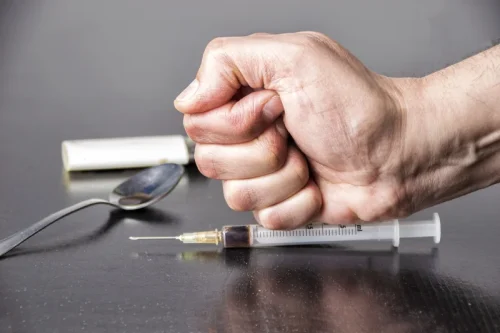
In addition to structural alterations, evidence suggests that chronic exposure to alcohol can lead to functional dysregulation of key brain systems that control behaviour such as reward processing, impulse control and emotional regulation. In recent years, functional magnetic resonance imaging (fMRI) has been used to probe these pathways via blood oxygen level dependent (BOLD) signal in the brain both at rest and during the performance of neurocognitive tasks in an MRI scanner. Dopamine reuptake inhibitors are drugs that block dopamine from being reabsorbed by nerve cells. Like the neurotransmitter serotonin, which helps regulate mood, dopamine is involved in many psychological illnesses. Abnormally functioning dopamine receptors play a role in some health and mental health disorders.
Neurochemical Dysfunction in Alcoholism
According to one study published by[67] physical dependence, which refers to the pharmacological tolerance induced by chronic alcohol intake, results in AWS and is neurobiologically supported by the imbalance between GABA and glutamate-NMDA neurotransmission. All psychoactive drugs can activate the mesolimbic DA system, but the DA system is not the only system involved in the positive reinforcement network in the NAc. Previous research about the neurobiochemisty of alcohol dependence does alcohol produce dopamine has focused on the DA system, but many of the findings have been contradictory. Further research aimed at clarifying the interaction between the DA system, the glutamatergic system and other neurotransmitter systems is needed before it will be possible to improve the effectiveness of interventions for preventing and treating alcohol dependence. Epigenetic pathways are tightly interlinked, resulting in increased complexity of alcohol-induced epigenetic dysregulation.
Level 3: Alcohol’s effects on transcriptional activity

As an example of the kind of brain chemistry changes which take place, the following image shows the brain scan of a methamphetamine addict and a non-addict [Figure 1]. Male and female rhesus macaques (Macaca mulatta; 5.5–8.5 years old at study onset) obtained from the Oregon National Primate Research Center were used in the current studies. All procedures were conducted in accordance with the NIH Guide for the Care and Use of Laboratory Animals and approved by the Oregon National Primate Research Center Institutional Animal Care and Use Committee.
Dopamine release was altered in a sex-dependent manner in chronic alcohol self-administering macaques

One factor contributing to the development of AUD may be the change in synaptic signaling in the caudate and putamen that could contribute to a bias toward sensory-motor circuit control of behavior and inflexible alcohol consumption [33, 34]. As an important regulator of behavioral output, dysregulation of dopamine neurotransmission is implicated in theories of AUD development [13, 16, 35]. Acutely, in vivo alcohol administration dose-dependently increases cortical, mesolimbic, and nigrostriatal dopamine in rodents [36]; an effect attributed to enhanced dopamine neuron firing [37]. However, in rodent and macaque brain slices, an acute alcohol challenge following chronic alcohol exposure (inhalation or drinking) decreases dopamine release in the nucleus accumbens (NAc) in vivo and ex vivo preparations [24, 38]. Beyond the NAc, chronic alcohol exposure has varied effects on dopamine release that are brain region and species dependent. Throughout the striatum, dopamine release is generally decreased following chronic alcohol use or treatment.

Pain and reward circuits antagonistically modulate alcohol expectancy to regulate drinking

Reduced MOR binding in post-mortem tissue could be interpreted as a neuroadaptive response to alcohol-induced release of endogenous β-endorphins in patients with severe alcohol dependence and could explain why naltrexone remains relatively ineffective in this subpopulation [140]. Preclinical data suggests that nalmefene counters alcohol-induced dysregulations of the MOR/endorphin and the KOR/dynorphin system [141]. Drugs that antagonize these receptors, including the licensed drug naltrexone have been found to attenuate alcohol seeking in rats and have been shown to clinically reduce alcohol consumption [144]. Given our findings showing differences in dopamine release, it might be assumed that these effects are attributable to changes in presynaptic dopamine terminals. It should be noted, however, that our study utilized electrical stimulation to induce dopamine release.
- There are several other parts that are affected, too, and they are responsible for other negative effects of alcohol that we haven’t mentioned.
- To put it simply, dopamine is responsible for much of the good we feel and can help regulate our mood, emotions, memory, sensations, and even body functions.
- Furthermore, these results indicate that OSU6162 might have the ability to attenuate alcohol‐mediated behaviours by counteracting the hypo‐dopaminergic state induced by long‐term drinking.
- However, the function of individual neurotransmitters and their receptors cannot entirely explain a syndrome as complex as alcoholism.

About the Author
- In addition, fast dopamine release events (dopamine transients) commence at the onset of a conditioned cue [18, 19].
- Inhibitory neurotransmitters transiently decrease the responsiveness of other neurons to further stimuli, whereas excitatory neurotransmitters produce the opposite effect.
- Indeed, in rodent models, alcohol abstinence or withdrawal periods are often followed by enhanced rebound alcohol drinking, the alcohol deprivation effect [66].
- However, the 5-HT1A receptor antagonists also altered food and water intake, suggesting that this receptor may modulate general consummatory behavior rather than specifically reduce the desire to drink alcohol.
- It has been around for thousands of years and has been known for its many stimulating and mind altering effects.
